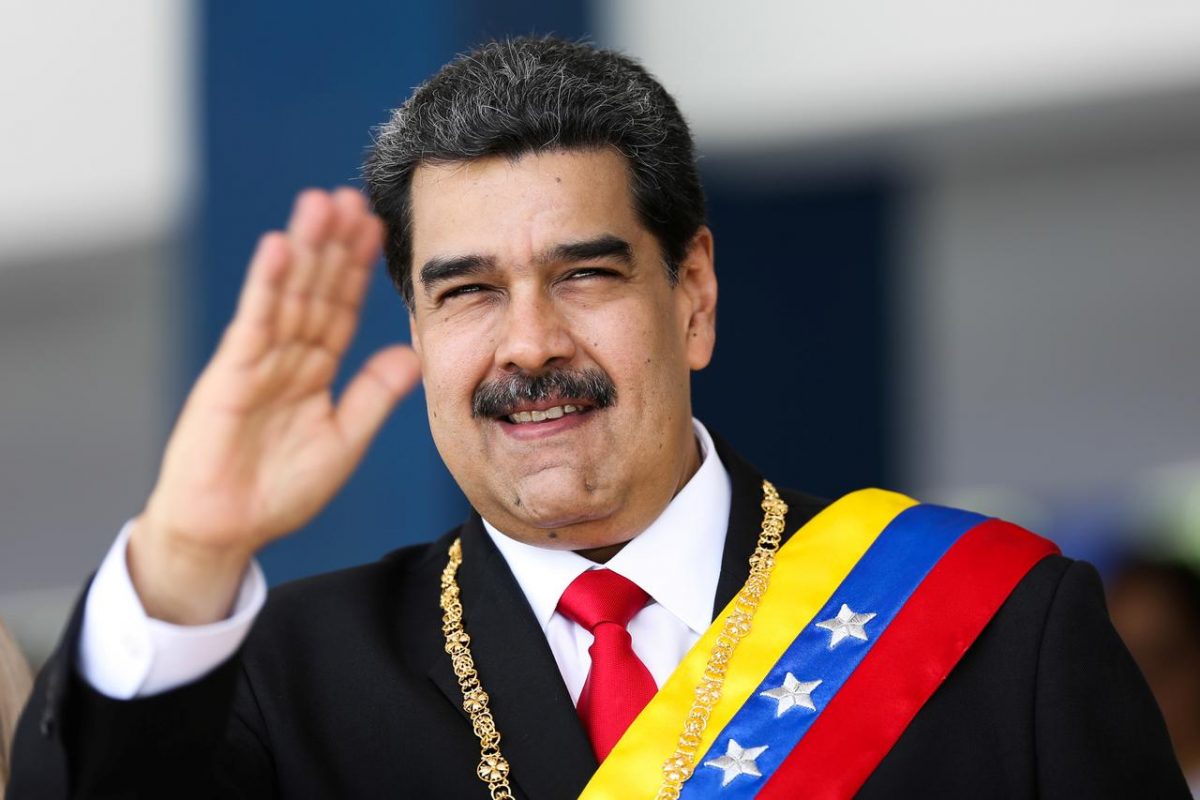WASHINGTON, (Reuters) – The U.S. government today indicted Venezuelan President Nicolas Maduro and more than a dozen other top Venezuelan officials on charges of “narco-terrorism,” the latest escalation of the Trump administration’s pressure campaign aimed at ousting the socialist leader.
The State Department offered a reward of up to $15 million for information leading to the arrest and conviction of Maduro, whose country has been convulsed by years of a deep economic crisis and political upheaval.
The indictment, a rare U.S. action against a sitting foreign head of state, marks a serious new phase against Maduro by Washington at a time when some U.S. officials have privately said President Donald Trump is increasingly frustrated with the results of his Venezuela policy.
Attorney General William Barr, announcing the charges, accused Maduro and his associates of conspiring with a dissident faction of the leftist Colombian guerrilla group FARC “to flood the United States with cocaine.”
“While the Venezuelan people suffer, this cabal…lines their pockets,” Barr said of Maduro and the more than a dozen others who were indicted.
Venezuela’s information ministry did not immediately reply to an email seeking comment. The U.S. government has previously lodged criminal indictments against members of Maduro’s family and inner circle.
He and his allies have dismissed such allegations as a smear campaign, and argue the United States is responsible for drug trafficking given its role as a leading consumer.
Maduro is already under U.S. sanctions and has been the target of a U.S. effort aimed at pushing him from power. He took office in 2013 after the death of his mentor President Hugo Chavez, a staunch U.S. foe.
Other Venezuelan officials whose indictments were announced today include Defense Minister Vladimir Padrino Lopez, senior socialist leader Diosdado Cabello and the chief justice of the country’s supreme court, Maikel Jose Moreno Perez, 54, who was charged with money laundering.
The United States and dozens of other countries have recognized opposition leader Juan Guaido as the country’s legitimate president. But Maduro has remained in power, backed by the country’s military and by Russia, China and Cuba.
U.S. officials have long accused Maduro and his associates or running a “narco-state,” saying they have used drug trafficking proceeds to make up for lost revenue from a Venezuelan oil sector heavily sanctioned by the United States.
The indictments were unsealed in New York, Florida and Washington.
Maduro and his top lieutenants ran a “narco-terrorism partnership with the FARC for the past 20 years,” said Geoffrey Berman, the U.S. Attorney for the Southern District of New York.
“The scope and magnitude of the drug trafficking alleged was made possible only because Maduro and others corrupted the institutions of Venezuela and provided political and military protection for the rampant narco-terrorism crimes described in our charges,” he added.
Berman accused Maduro and his co-defendants of “using their political and miltiary power to promote narco-terrorism for their personal gain.” He said the case took many years to build.
The U.S. Attorney for the Southern District of Florida Ariana Fajardo Orshan said she sees signs of Venezuelan officials’ dirty laundered money throughout her area every day, from fancy yachts to million-dollar condos.
“This party is coming to an end,” she said.
Asked whether the U.S. government wants to capture Maduro dead or alive, Barr said: “We want him captured so he can face justice in U.S. court.” But Barr offered no indication of how U.S. authorities believe they might get their hands on Maduro, who has endured more than a year of international pressure and on-again, off-again street protests as the OPEC member’s economy has continued to unravel.
In February 2017, the U.S. Treasury Department imposed sanctions against Venezuelan Vice President Tareck el-Aissami for drug trafficking and other related crimes.
And in December 2017, two nephews of Maduro’s wife, Franqui Francisco Flores de Freitas and Efrain Antonio Campo Flores, were convicted in U.S. federal court for drug smuggling.

